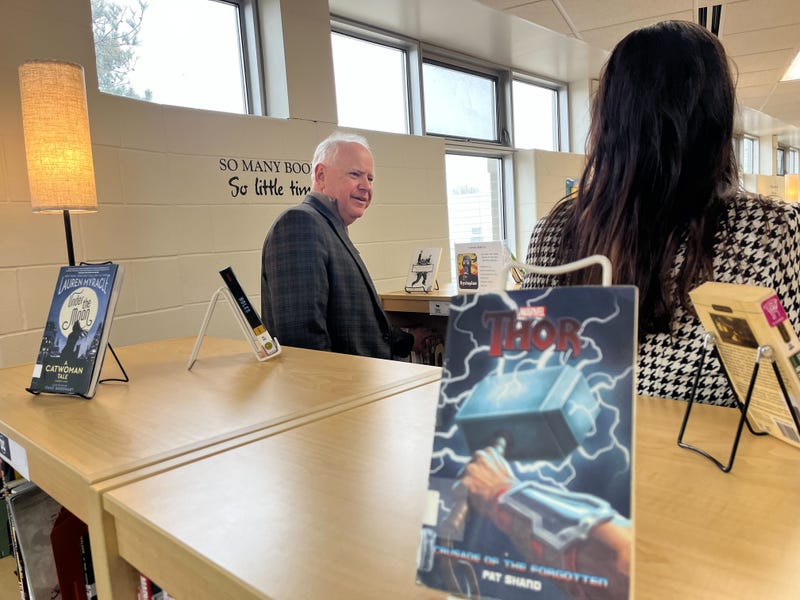
Minnesota Governor Tim Walz is doubling down on his support for a new law that would stop the banning of books in public schools and libraries. The proposal advanced out of the House Education Committee this week.
Governor Walz says a big part of the problem is that many of the books being banned often focus on stories about people of color, or members of the LGBTQ community.
"To see someone in a story who looks, and sounds, and is like you," says Walz. "And to understand that that's where the world's at. Because it can seem small, you can seem like you're on your own. The idea of a book ban is basically the antithesis of everything we believe in education and in this country."
The bill also establishes a library "bill of rights" requiring educators follow to certain principles. Those include giving licensed library media specialists the ability to decide what books make it into schools.
Rep. Ben Bakeberg (R-Jordan) says he is concerned about potentially having just one person in a school district make such decisions and suggested more people need to be involved in the process.
“You never sail out on a ship alone,” Bakeberg said. “The way this is written, we’re putting them in the boat and we’re kicking them out all by themselves to make these decisions. This is more about politics than this is about books.”
Rep. Peggy Bennett (R-Albert Lea) believes book decisions should be left to the local level, not state government.
“Locally elected school boards, they are not political units. They are locally elected to run their school districts. That’s what they’re there for. That’s local control,” says Bennett. “This state control does not belong in this situation.”
According to the American Library Association, between January 1 and August 31, 2023, there were 695 attempts to censor library materials and services and documented challenges to 1,915 titles, most of them challenges to books written by or about a person of color or a member of the LGBTQIA+ community.
“These attacks on our freedom to read should trouble every person who values liberty and our constitutional rights,” said Deborah Caldwell-Stone, director of ALA’s Office for Intellectual Freedom. “To allow a group of people or any individual, no matter how powerful or loud, to become the decision-maker about what books we can read or whether libraries exist, is to place all of our rights and liberties in jeopardy.”
